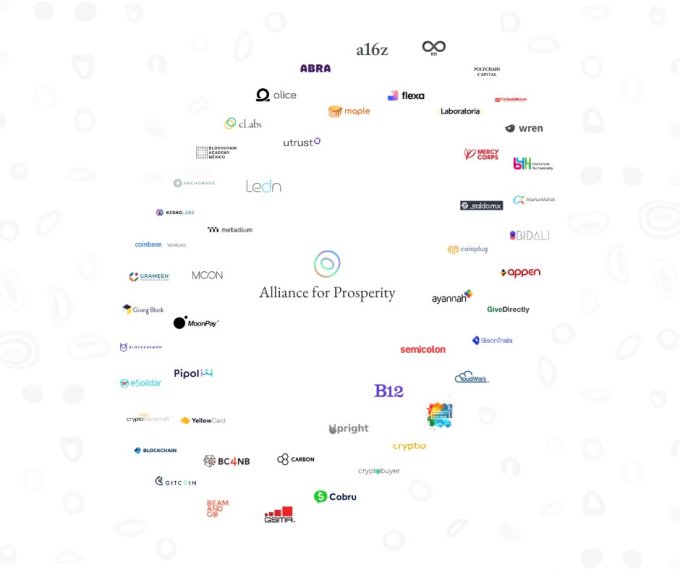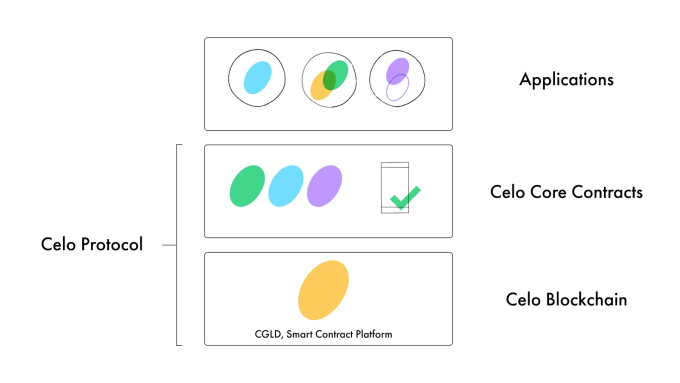This article comes fromBloomberg、TechcrunchBloomberg
Odaily Translator |
![]()
, by Olga Kharif and Josh Constine
Odaily Translator |Celo Alliance for ProsperityMany members of the Libra Association are now also supporting a rival initiative.This is called "(Celo Alliance for Prosperity)" project Wednesday (March 11)
Announcing its 50 founding members. They include Libra supporters Anchorage, Bison Trails Co., Coinbase Ventures, Andreessen Horowitz (a16z) and Mercy Corps. The project, which aims to provide humanitarian aid, facilitate payments and provide microloans through the cryptocurrency Celo Dollar, is scheduled to launch in April this year.at
Facebook and its partners consider redesigning the Libra project
, the debut of the new alliance comes as it grapples with global regulatory and political scrutiny. The Libra Alliance has lost several key members in recent months. By backing Celo, some existing members of the Libra Association are essentially hedging their bets.
“There are some similarities in terms of mission, which is why some people join both coalitions,” Chuck Kimble, head of the Alliance for Prosperity, said in a phone interview.
Libra has been controversial since its inception, mostly because of Facebook's involvement; Celo may not suffer from some of the reputational issues Facebook has. But the new plan also lacks a key part of Libra's appeal: connection to Facebook's 2 billion monthly active users. It must also compete with established payment networks such as PayPal Holdings Inc.
"We've met with governments around the world, as well as central banks, and we're continually engaging with governments in many countries that we want to serve."
Anchorage is involved in both Celo and Libra, and its president, Diogo Monica, told Bloomberg in a statement: “Celo and Libra each have unique focuses and approaches, but they share a common goal that Anchorage firmly believes in: providing access to the unbanked. Banking services. We advocate for a fairer and more open financial system that supports every agreement that customers want to participate in, so we have a responsibility to support both projects.”
About Celo Alliance for Prosperity

according toTechcrunchThe Celo Foundation's Alliance for Prosperity provides a way for developers to build decentralized mobile applications based on the Celo blockchain platform and the USD stablecoin.
according to
According to reports, the open-source Celo platform is still in testing and plans to officially launch the mainnet in April. The nonprofit, founded in 2017, has raised $36.4 million in funding, including its Series A round in which Andreessen Horowitz’s a16z Crypto bought $15 million worth of Celo Gold tokens and Polychain Capital bought $10 million in Celo Gold tokens. Celo Gold Token.

The big difference between Celo and other blockchains is that payments in the Celo Dollar stablecoin can be sent to people's phone numbers rather than complex addresses. Its goal is to make it easier to deliver utility through the blockchain by building a flexible application network without scaring regulators like Libra.
The Alliance for Prosperity includes Libra Association members Andreessen Horowitz (funding Celo), Coinbase (venture capital), Bison Trails, Anchorage, and Mercy Corps. This could create a conflict of interest over which cryptocurrency and developer platform they promote to portfolio companies, integrate into their offerings, or focus on providing financial services to those in need.
Other notable alliance partners include Carbon, GiveDirectly, Grameen Foundation, Maple and Polychain. According to Chuck Kimble, head of business development at Celo's cLabs and head of the alliance, the partners made some commitments, "supporting the development work on the project, building the infrastructure, implementing the desired use cases on the platform, integrating Celo assets into the project , or collaborate in the community on educational initiatives to further the use of blockchain technology." Anyone can apply to join the open network, and unlike Libra, which requires a $10 million minimum financial investment first.

Celo isn’t trying to replace the U.S. dollar with its own synthetic currency, and its reserves are backed by other cryptocurrencies rather than fiat currencies. That could make it easier for regulators concerned that Libra's tokens and fiat currency-backed reserves could affect the global financial system. Celo Wallet, the first decentralized app on the platform, is already available on iOS and Android.
When asked what the biggest threats to Celo's success were, Kimble cited "banking infrastructure improving faster than we expected" and "mobile adoption or LTE data not on the current trajectory." He didn’t mention the developer fatigue, regulatory scrutiny, technical complexity, or slow adoption of blockchain utilities that have plagued otherwise good crypto projects.
To encourage adoption, the alliance will distribute "Gifts of Prosperity" in the form of financial grants to developers who develop Celo products for the benefit of society.
The Celo system also has some unique features. People exchange other cryptocurrencies for Celo Gold, which in turn converts them into Celo Dollars, which they can spend. The reserve is backed by other cryptocurrencies like bitcoin and ethereum, not fiat currency, and is not fully collateralized. This could make it vulnerable to a Celo bank run or a crash in the price of these currencies. If Celo Gold and Celo Dollar prices are out of sync, Celo will also allow arbitrageurs to obtain the price difference.
Celo can make banking cheaper and more accessible while driving new fintech innovations. But achieving any of the above requires getting enough developers to build something truly useful, making blockchain and currency exchange simple enough for mainstream audiences in developing countries, and increasing adoption to cryptocurrencies A level of importance that projects rarely achieve. If this project is to succeed, the Alliance for Prosperity will have to put more effort into the project (to make it prosper) than just being named the Alliance for Prosperity.